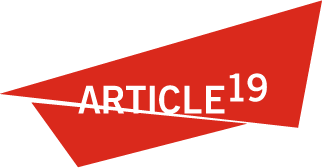
Over the past decade, more than half of African countries have shut down internet access at least once. Typically, these internet shutdowns are usually ordered by government authorities amidst major political events such as public protests and elections. Notably, in 2023, ten African countries including Ethiopia, Algeria, Mauritania, Gabon and Senegal collectively contributed to 17 new cases of internet shutdowns. Senegal is the most recent African country to order an internet shutdown in the new year and the shutdown has been instituted twice already in February 2024.
DOWNLOAD THE INVITE
- Event Details:
- Date Thursday, 14 March 2024
- Time: 12:00 – 14:00 SAST/ 10:00 – 12:00 Senegal GMT
- Venue: Online
REGISTER ON ZOOM
The first shutdown was ordered on 4 February 2024 by the Senegalese Ministry of Communications, Telecommunications and Digital Economy following President Macky Sall’s announcement of the indefinite postponement of elections that were initially slated for 25 February 2024. The Ministry ordered the second shutdown on 13 February following public protests triggered by President Sall’s announcement. Senegal’s actions violate several human rights and fundamental freedoms including freedom of expression, access to information and media freedom. These rights are guaranteed under articles 8, 10 and 11 of Senegal’s Constitution and article 9 of the African Charter on Human and Peoples Rights. Soft law instruments such as the 2019 Declaration of Principles of Freedom of Expression and Access to Information (2019 Declaration) and the Guidelines on Access to Information and Elections in Africa (Guidelines) reinforce the protection of these rights. In particular, principle 38(2) of the 2019 Declaration prohibits states from engaging in or condoning any disruption of access to the internet and other digital technologies for segments of the public or an entire population. Further, guideline 27 of the Guidelines requires that in exceptional cases where international law permits a shutdown, the reasons shall be proactively disclosed and the action must be authorised by law, serve a legitimate aim, and be necessary and proportional in a democratic society. It is arguable whether Senegal complied with these legal dictates. Considering the debilitating impact of these shutdowns on human rights and socio-economic well-being, there is a pressing need for collaborative solutions to address internet shutdowns. After weeks of political crisis and violent protests, Senegal’s government finally declared 24 March as the election date.
Given this background, this webinar aims to explore how best to safeguard internet access, citizen engagement and the upcoming presidential election in Senegal in compliance with Senegal’s Constitution and relevant regional normative dictates. It brings experts on digital/human rights and elections together to discuss this pertinent subject.
Objectives:
- To understand the current developments on internet shutdowns in African countries.
- To assess the impact of internet shutdowns on elections in Senegal.
- To assess human rights protection during internet shutdowns in Senegal.
- To explore Senegal’s legal obligations on freedom of expression and access to information during elections.
- To propose recommendations on how to prevent internet shutdowns, and address their impact on elections and human rights.
Moderator:
Marystella A Simiyu
Program Officer: Expression, Information and Digital Rights Unit,
Centre for Human Rights, University of Pretoria
Alfred Bulakali
Director: Article 19 West Africa and Senegal
Panelists:
- Felicia Anthonio: Nature and prevalence of internet shutdowns in Africa/Senegal
Global Campaign Manager: Access Now - Olufunto Akinduro: The impact of shutdowns on elections in Senegal
Senior Programme Officer, Africa and West Asia: International IDEA - Abdoulaye Ndiaye: Human rights protection during internet shutdowns in Senegal
Program Officer: Article 19 West Africa and Senegal - Cheikh Fall: Litigating internet shutdowns in Senegal at the ECOWAS Court of Justice
Founder: AfricTivistes - Mr Ibrahima Kane:
Senegal’s legal obligation to keep the internet accessible during elections using applicable standards within the African human rights system and beyond Human Rights Advisor: Open Society Foundations
*Please note that the webinar will be held in both English and French. It will also be live-streamed, recorded and published on the online platforms of the Centre for Human Rights and Article 19 West Africa and Senegal for further dissemination.
For more information, please contact:
Marystella Auma Simiyu
Project Officer
Centre for Human Rights, University of Pretoria: Expression, Information and Digital Rights Unit
Tel: +27 (0) 12 420 3810
Fax: +27 (0) 86 580 5743
marystella.simiyu@up.ac.za
Dr Tomiwa Ilori
Postdoctoral Research Fellow:
Centre for Human Rights, University of Pretoria: Expression, Information and Digital Rights Unit
Tel: +27 (0) 12 420 4397
Fax: +27 (0) 86 580 5743
oluwatomiwa.ilori@up.ac.za
Dr Sylla Sow, PhD
Legal Analysis, Research and Advocacy Associate
ARTICLE 19 Senegal and West Africa
Tel: +221 787804602
Fax: +221 338608575
sylla@article19.org
